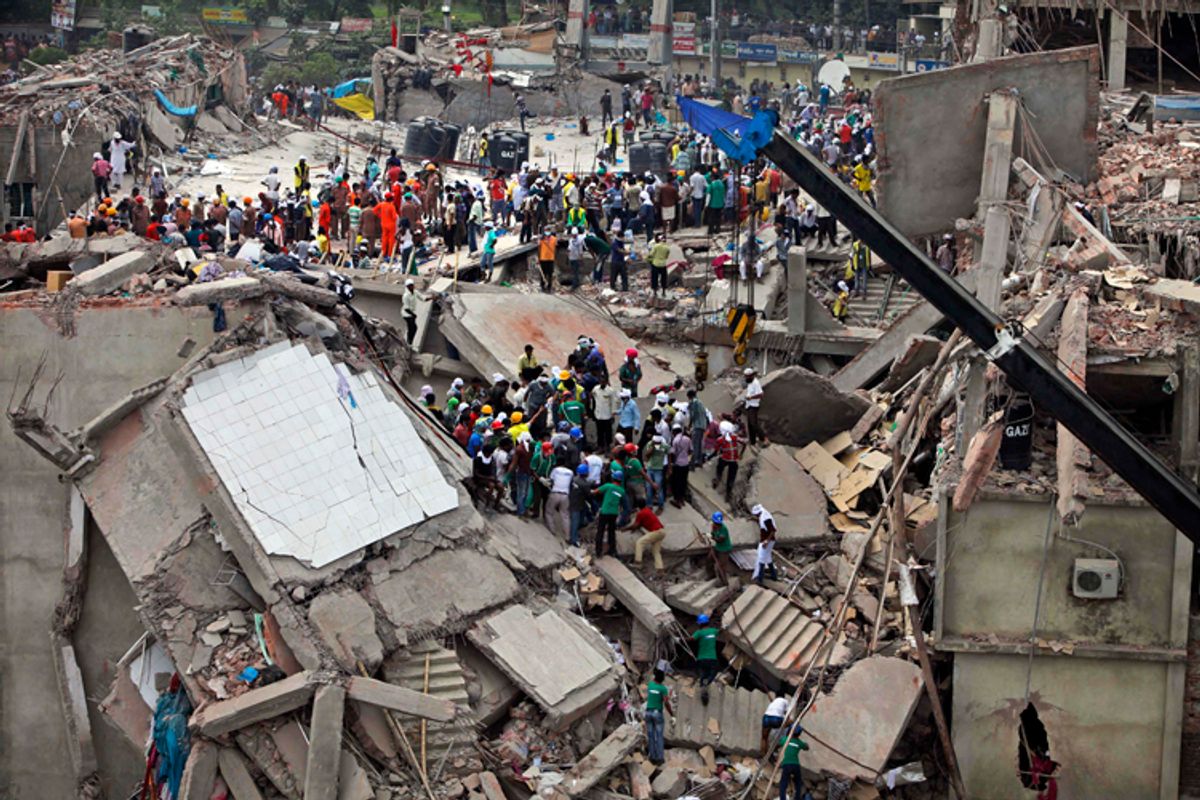 Coincident with the global May Day celebration of the rights of workers, the Pope has condemned the climate of “slave labor” that led to the tragic building collapse in Bangladesh last week.
Coincident with the global May Day celebration of the rights of workers, the Pope has condemned the climate of “slave labor” that led to the tragic building collapse in Bangladesh last week.
The Associated Press reported that during a private mass, Pope Francis was apparently outraged by a newspaper headline which noted that the 400 people who died in a garment factory in Dhaka were only paid the equivalent of 38 euros (about $50) per month.
"That is what the people who died were being paid. This is called slave labor," he was quoted as saying.
"Today in the world this slavery is being committed against something beautiful that God has given us -- the capacity to create, to work, to have dignity. How many brothers and sisters find themselves in this situation! Not paying fairly, not giving a job because you are only looking at balance sheets, only looking at how to make a profit. That goes against God!"
The five garment factories inside the poorly constructed Rana Plaza in Dhaka housed some 3,500 workers – at last count, 402 had died in the collapse, while more than 2,500 are wounded. At least 150 people remain missing.
This disaster followed a fire in another Bangladeshi factory five months ago which killed 112 people.
The Pope then added: "There are many people who want to work but cannot. When a society is organized in a way that not everyone is given the chance to work, that society is not just."
Meanwhile, thousands of workers and other activists took to the streets of central Dhaka on Wednesday to demand improved working conditions and the death of the owner of the collapsed building, Mohammed Sohel Rana.
AP noted that one person at the rally spoke through a loudspeaker on the back of a truck: "My brother has died. My sister has died. Their blood will not be valueless."
Sohel Rana, 38, is now under police custody and is likely to be charged with negligence, illegal construction practices and forcing workers to toil in unsafe conditions. If no more charges are filed, he faces up to 7 years in prison (which will anger protesters demanding his death).
"I want the death penalty for the owner of the building,” said one garment employee, according to AP.
“We want regular salaries, raises and absolutely we want better safety in our factories.”
Meanwhile, the Bangladesh High Court has ordered the confiscation of Sohel Rana's properties, and a freeze on the assets of the owners of the factories which operated inside Rana Plaza, so that such funds can be used to pay surviving workers and families of the victims.
The European Union also said it may take steps to force the Bangladeshi garment industry to upgrade facilities and improve work conditions by enacting changes to Bangladesh's preferential, duty-free and quota-free access to EU markets. "The European Union calls upon the Bangladeshi authorities to act immediately to ensure that factories across the country comply with international labor standards," EU foreign policy chief Catherine Ashton and Trade Commissioner Karel de Gucht said in a statement.
The IndustriAll Global Union, the Swiss-based federation that represents 50 million workers around the world, established a May 15th deadline for Western retailer to propose fire and building safety standards for Bangladeshi factories.
Bangladesh’s huge garment economy accounts for some $19 billion of annual exports, with 60 percent of that figure going to Europe. The next biggest market is the U.S. (23 percent).
Some 3.6 million Bangladeshis work in the industry, the majority of them women. Garments account for 80 percent of Bangladesh’s total export business.



Shares